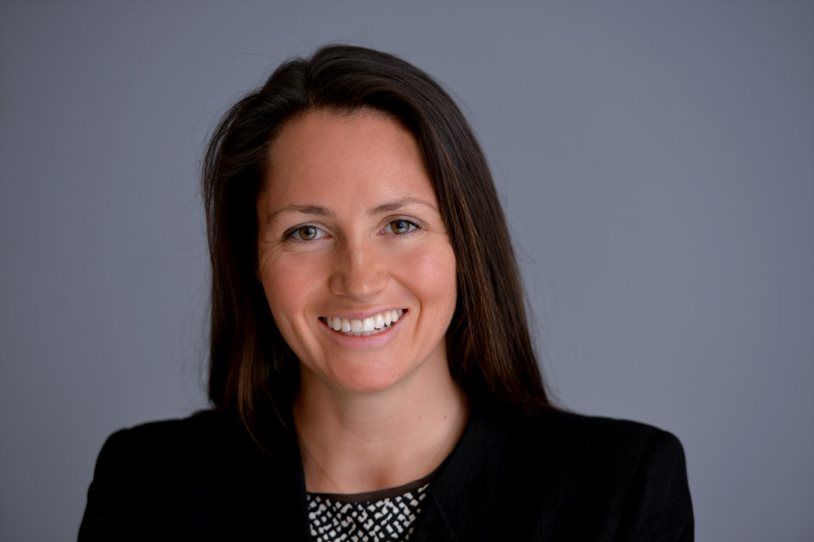2020 has been a challenging year and it is difficult to think of the Covid-19 pandemic as anything other than a black cloud looming above. And yet it has also exposed the human race for what we really are: complex beings able to adapt and innovate to solve complex challenges; we continue to strive for a better future than current circumstances suggest is possible.
It is this aspect of human nature that has underpinned our team’s philosophy from the beginning; the observation that economies and societies evolve for the better. Crises, when they erupt, provide seemingly insurmountable challenges and must be overcome, requiring deep analysis of the problem, government and regulatory involvement, and, in most cases, the efficiency of profit-driven companies to develop and distribute solutions.
See also: – Improving diversity; improving returns
Today, we face multiple challenges beyond Covid-19 including the Climate Emergency, the collapse in biodiversity and rising inequality. But recent months have shown us that we are capable of drastically adapting our lives when necessary.
The first IPCC report in 1990 explained the anthropogenic climate crisis already under way. It was also the year I turned 10 and I recall reading a booklet my dad brought back from an event at work, the Rainforest Lecture at the Royal Botanic Gardens, Kew. Jonathon Porritt (who I have since come to know through his advisory role on our funds) introduced the event and the Prince of Wales spoke about the value of tropical forests and their role in maintaining the earth’s natural balance, and the link to global warming. I found the booklet while clearing out during lockdown and it hit me, both how inspired it made me feel at the time and a sadness that, despite knowing we were headed for trouble 30 years ago, we have subsequently emitted more CO2 than in the preceding 250 years and the Amazon is still being exploited.
It is easy to feel frustrated by the apparent bind we are in, where our dependence on fossil fuels impacts our climate. The scale of change is also daunting: the UK needs to halve emissions every decade to meet Paris Accord targets by 2050, a minimum 7% improvement in carbon efficiency every year. Putting this in context, the reduction in emissions caused by recent lockdowns was just 8% compared with 2019 – and lockdowns are clearly not a viable approach.
So when (cautiously) reminding my own children about what is at stake, I combine this with the progress we are making across many areas. “When things are getting better, we often don’t hear about them,” said physician and author Hans Rosling; all around the world there are visible improvements, if you care to look.
Since 1990, we have developed a deeper understanding of the environmental burden and our dependence on natural ecosystems, and now see the interconnectedness between our choices and nature more clearly. We have also learned lessons when it comes to policymaking. As an example, the hole in the ozone layer caused by chemicals found in aerosols was identified as harmful to human health as well as our seas and plants. We now know this damage is now reversing; the hole is expected to recover by mid-century.
See also: – Easy transitions, rhubarb and Google Classroom: WFH with Liontrust’s Harriet Parker
The swift, collective action taken imposed controls on ozone-depleting compounds and was ratified by every country in the world. The Montreal Protocol was the largest contribution to mitigating global warming and without it, we would certainly be looking at another hole over the Arctic. It shows what can be achieved when leaders listen to science, act collectively and are not afraid to impose environmental regulations on business.
We clearly rely more on fossil fuels than aerosols, so the transition to clean energy will be slower, but it is under way. China, the EU and Japan have all boosted commitments to long-term targets on emissions and Joe Biden as President-Elect has vowed to lead the US back into the Paris Accord just days after the country left under the Trump administration. Having the US engaged and invited to COP26 in the UK means greater chance of an effective international effort.
The last three decades have seen significant improvements in technology and we can now clearly state what the world needs to do, and, as importantly, we know we can afford it. The recent IMF World Economic Outlook says mitigating climate change is possible through growth-friendly strategies and suggests global output might suffer just 1% once we factor in the benefits of avoiding climate damage. Huge investment is needed and companies with the skills to solve complex challenges should see strong growth alongside delivering a positive impact, and will benefit in the transition to a climate and nature-positive economy.








